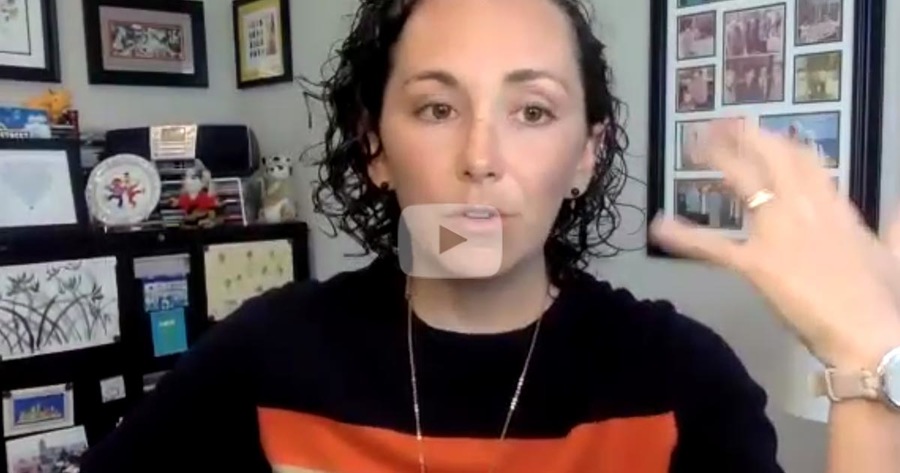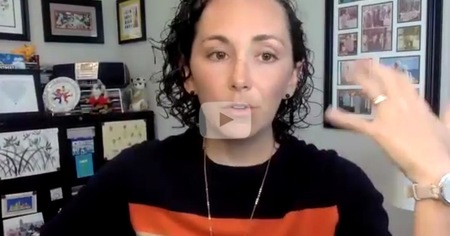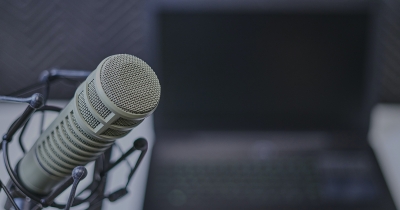To explore this topic further, Gina Warner, President and CEO, NAA, hosted a Let's Talk the Future of Afterschool discussion with Stephanie Krauss, author of "Making It: What Today's Kids Need for Tomorrow's World."
Together with participants, they explored what youth (and the adults who work with them) need to be prepared for today's world and what this means for afterschool and youth development programs and professionals.
Krauss talked about making the jump from local frontline work to national work.
"One of the things I was struck by right away is the conversations you're privy to when you make the jump into the national space are things that A. I didn't have time for, and B. even if I had time, generally, I did not know existed," Krauss said, noting being busy kept many from pondering what actually mattered most. "I knew there was a giant difference between how kids were meant to learn and grow and develop and the experience they were actually having when I was in the classroom."
Krauss describes leaving the frontlines and suddenly having more time and more awareness of current needs.
"I realized that our picture of what adulthood requires is often very outdated in education and in youth development and the science of how kids learn and the science of adolescence has been changing and evolving pretty rapidly," she said. "I realized that I was in a position to write a love letter back to the frontlines. I wanted to write the book that I needed."
Her book seeks to offer a conversational, updated picture of what the world looks like for youth growing up and going into higher education and the workforce today. Much of what those in the afterschool field have known for years is now being confirmed by research. Krauss also discussed the Science of Learning and Development (SoLD) initiative.
"I think one thing that's really important to know—which happens so much in the out-of-school time space—is that young people are shaped by the environments and experiences that they're in and that they're literally wired and rewired by them," Krauss said, emphasizing the experiential quality of learning by doing is critical and that research now shows adolescence lasts until age 25 or 26. "For tweens and teens, the thing that we have to know and grapple with is that the learning happens in in relationship to social connectivity.
"When they're stripped of that relational piece and they're stripped of the social interaction, they're also stripped of the experiential piece."
Though Krauss acknowledges some social engagement and good learning can happen online, she believes that it's never going to be an adequate substitute for high-quality, in-person interaction. She also notes that when it comes to youth development and education partnerships, there are some easy things to put into place to support learning such as reducing the number of assignments, having things start latter in the day, etc.
It's also vital to recognize, Krauss says, to note when youth are struggling with things like planning, self-regulation or focus, that they may not be doing it deliberately and it could be neurological—especially when the lives of youth today are increasingly bookended by crisis.
"I would flag heavily the need to focus on cognitive health, both in terms of the context of like who this particular group of kids are, but also in relationship to what we see that's going to come down the pike," Krauss said.
"To really be about the business of helping young people make it in the world, we must operate on two planes: the one we're living in and the one we're building." – Stephanie Krauss, "Making It: What Today's Kids Need for Tomorrow's World."
After sharing the above quote, Warner prompted Krauss to share what the quote means for kids and what responsibility that puts on adults.
"The world is still unjust and unfair, and it will be for some time, and we are called to try and co-create with young people a more just and fair world," Krauss said, noting there's a muddy middle area between surviving and thriving. "In the meantime, they need a way to be able to navigate the world as it is and we have to name what those rules are and how things work."
Krauss encouraged everyone on the call, if they haven't already, to get mental health first aid training in preparation for the types of behaviors already being seen in younger people including depression, obsessive compulsive behaviors, social anxiety and more.
"We have to recognize that the future work in the future of this very crazy volatile world really requires the things that you all do every day, and you are deeply under resourced in a way that has formed the identity of the field," Krauss said, before further breaking down the currencies described in her book and what they mean for youth and the future.
To participate in future conversations like this one aimed at professional development and growth, upgrade to an Executive membership today.
Courtesy of NAA.




